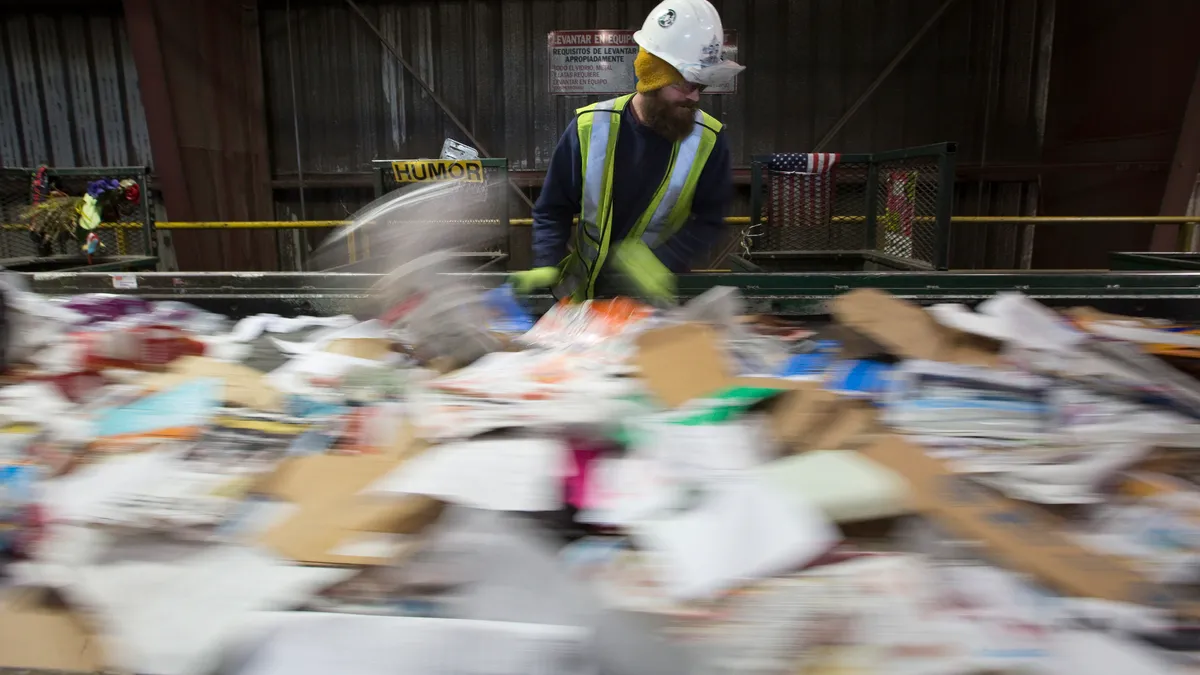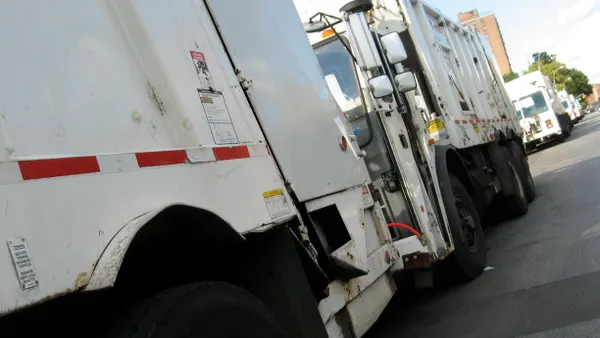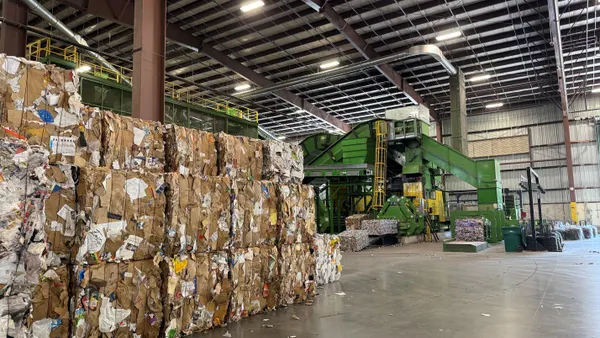Partnerships between municipalities, nonprofits and recyclers have expanded and evolved in recent months to bolster local recycling infrastructure. Here’s a look at a few projects that are working to improve and upgrade recycling facilities to process and sell more materials.
MRF upgrades in St. Peters, Missouri, aim to collect more PP
The Recycle City MRF in St. Peters, Missouri, has completed a significant upgrade meant to expand polypropylene plastic recycling in the region. The enhanced facility is expected to recover an additional 100 tons of PP each year. The MRF serves the cities of St. Peters, Cottleville and O’Fallon.
The Recycling Partnership’s Polypropylene Recycling Coalition said in a news release that it invested in the project.
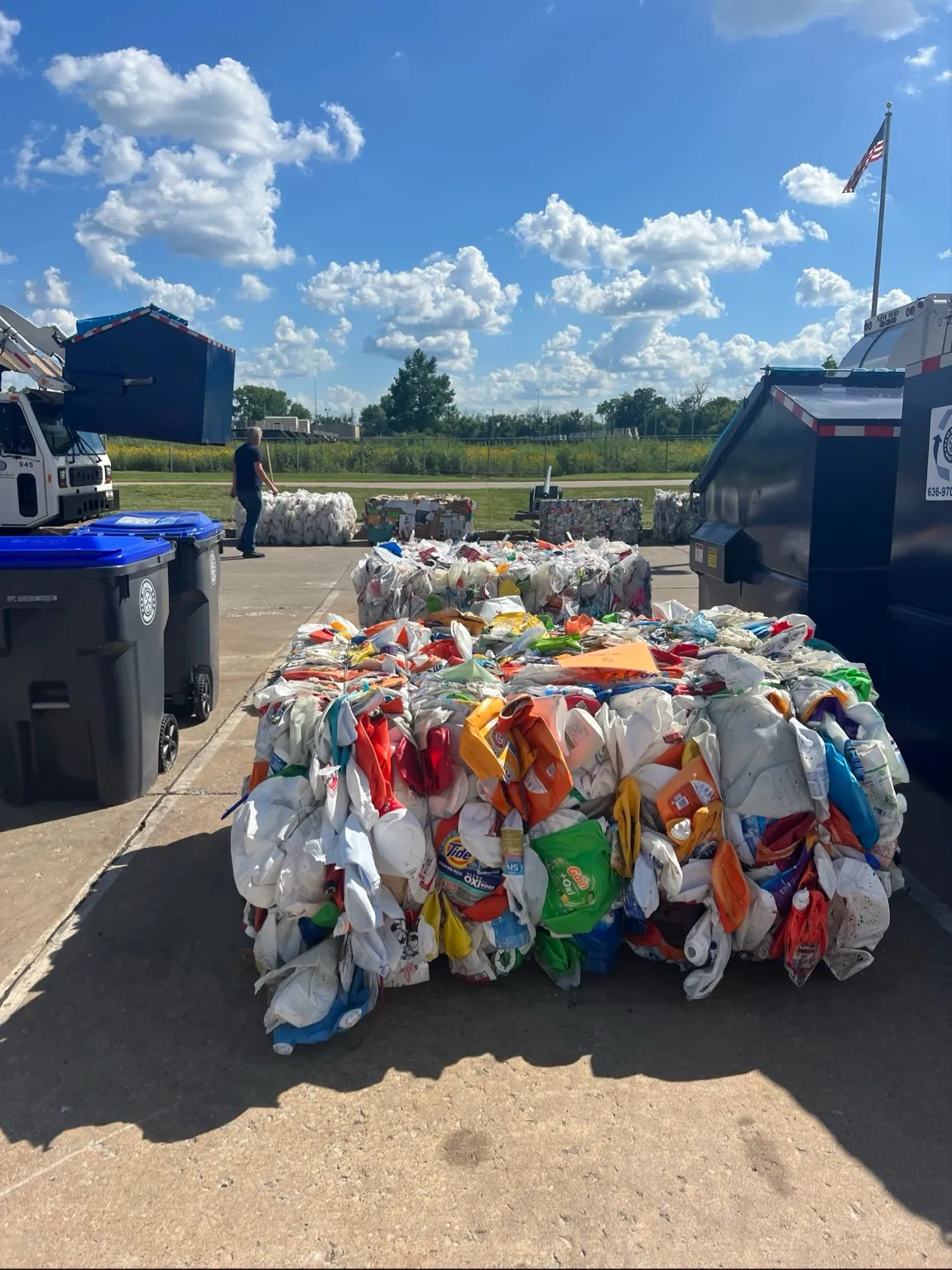
The Polypropylene Recycling Coalition aims to work with stakeholders like resin suppliers, manufacturers and recycling processors to improve PP recovery and better develop end markets for such material.
St. Peters and The Recycling Partnership will also create an education campaign meant to help residents understand what is accepted and how to recycle it properly. The campaign will run through the end of 2025.
“This is not just an equipment upgrade. It’s a commitment to the full system and a proof point that shows investment in local recycling programs pays dividends for the local economy and domestic recycling supply chain,” said Cody Marshall, chief recycling officer at The Recycling Partnership, in a statement.
St. Peters and The Partnership have worked together on other recycling projects. In 2024, about 20,000 homes in St. Peters and nearby Cottleville got new recycling carts as part of the process of updating the curbside recycling system from an opt-in program to a universal program.
The American Beverage Association and Missouri Beverage Association supported that update through the Every Bottle Back initiative.
Goodwill Industries expands recycled plastics processing capabilities in Ontario, Canada
Goodwill Industries’ Ontario Great Lakes division, which serves parts of Canada’s province of Ontario, is expanding its plastics processing capabilities by installing new recycling equipment.
Rotogran built a custom size reduction system that includes a granulator, feed conveyor and evacuation system. It is expected to divert more than 600,000 pounds of plastic per year, it said in a news release.
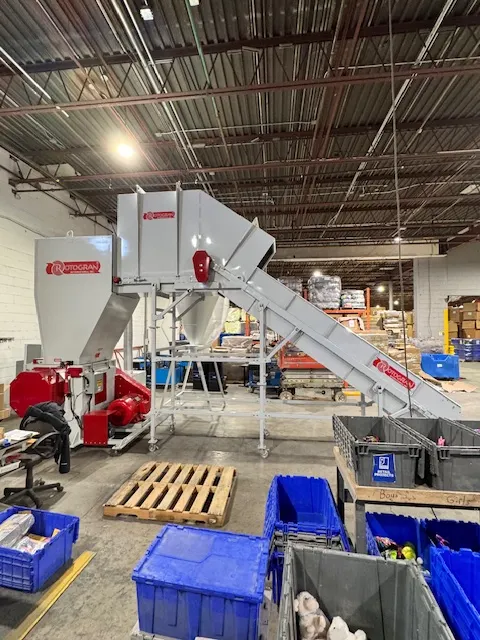
The equipment is designed to process what Goodwill calls “inconsistent feedstock” such as LDPE, HDPE that comes from items the organization can’t sell, such as food storage containers and certain plastic toys.
“There wasn’t an aftermarket solution in place, so we needed to create one,” said John Quigley, circularity and sustainability specialist at Goodwill, in a statement.
Goodwill Industries OGL also partnered with GreenWell Plastics, a Canadian remanufacturer, to convert the processed plastic into products such as outdoor furniture and plastic lumber.
“There is a lot of capacity to expand,” Quigley said. “We’re looking forward to seeing how this sustainability initiative continues to evolve and grow.”
So far in 2025, Goodwill Industries’ Ontario Great Lakes division has collected more than 69 million pounds of donated items. Of that, about 45 million pounds was sold for reuse, and another 14 million pounds were recycled, the organization said.
Canton, Ohio, to reorganize its recycling division, upgrade facility
The Canton Recycle Center is transitioning to a new management structure to streamline operations. The recycling center was once operated under Canton’s health district in partnership with the city and the Stark-Tuscarawas-Wayne Recycling District. As of July 15, it is operated instead by the Canton Building Department as part of that department’s code enforcement division, according to the Canton Repository.
The change is meant to offer more efficient services. In recent years, it has become harder to staff the recycling center because of the labor-intensive roles, the Canton health commissioner told the Repository. As a result, the building department is expected to have a bigger budget to invest in repairs and staffing, she said.
The recycling center is temporarily closed until facility upgrades can be completed, the city said. Canton City Public Health began managing the center in 2010 as a place for residents to drop off old tires. But it quickly expanded to include other services such as e-waste recycling and household hazardous waste drop-offs, according to a social media post from the public health department.
This story first appeared in the Waste Dive: Recycling newsletter. Sign up for the weekly emails here.



